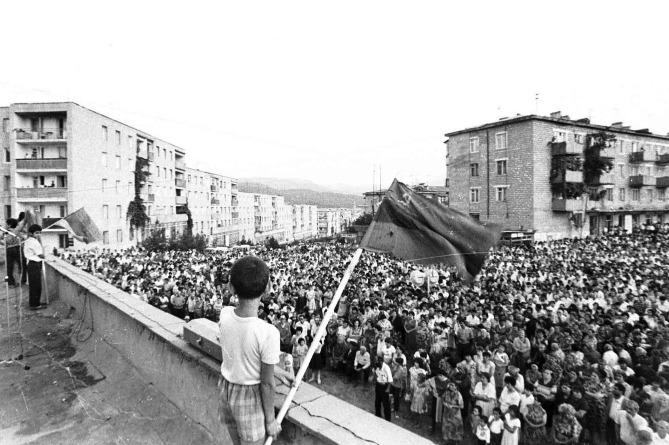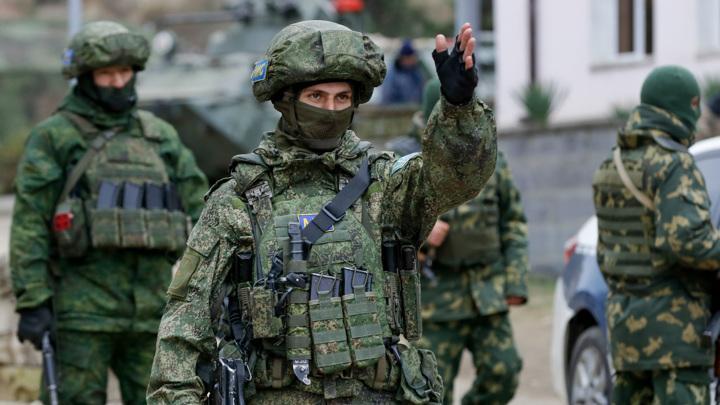Armenia intends to commit another anti-Azerbaijani provocation in Khankendi Second signal to Russian peacekeepers
While Baku and Yerevan are already working on the delimitation and demarcation of the Armenian-Azerbaijani border, which was announced at the first meeting of the deputy prime ministers of the two countries on May 24, 2022, within the Brussels agreements, few gangs operating in the zone temporarily controlled by Russian peacekeepers in the Karabakh region of the Republic of Azerbaijan still dream of restoring the previous situation through provocations and not only the armed ones.
According to Armenian media, a procession and a rally under the slogan “Stand up, son, in the name of Artsakh” is planned to be held in Khankendi city on May 28. The procession will begin at 17:50 (GMT+4) at the Surb Hakob Church, while the rally at 19:00 (GMT+4) on Renaissance Square.
The slogan itself, through which revanchists and separatists urge the ethnic Armenian population of the Karabakh region of Azerbaijan to participate in the rally and procession, is a provocation. “Standing up in the name of Artsakh” is a direct call for an armed struggle against the Azerbaijani central government, this is an incitement of intense hatred towards the Azerbaijani people and Azerbaijan, within which the Armenians, in fact, live.

We have already witnessed this 34 years ago in the then Nagorno-Karabakh Autonomous Region of the Azerbaijan Soviet Socialist Republic. Such leaflets as “It is time to hold party, trade union and Komsomol [political youth organization in the Soviet Union] meetings at enterprises, collective farms and state-owned farms, the agenda of which should include the issue of the reunification of Karabakh with the Motherland” were distributed in the above-mentioned region in January 1988.
The rallies of the Armenian population demanding to reconsider the administrative-territorial borders of Azerbaijan and Armenia started on February 13, 1988, the result of which was the illegal session of the regional council held on February 20, 1988. Then there were long 32 years of conflict [Armenia-Azerbaijan conflict over Karabakh], which was resolved by the Azerbaijani army in autumn 2020.

Today, Russian peacekeepers are deployed in that part of the Karabakh region of Azerbaijan, in which revanchist provocateurs among the ethnic Armenian population intend to commit another provocative trick. They understand what these provocations may lead to, as history testifies to this.
The command of the Russian peacekeeping contingent should understand its responsibility (of course, if it still intends to engage in peacekeeping, rather than its imitation and support for gangs) and clearly explain to provocateurs the danger as a result of the planned provocations. It is good if they understand. If they don't understand, it means Russian peacekeepers explained badly. The peacekeepers will be reprimanded again.








